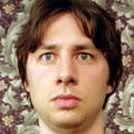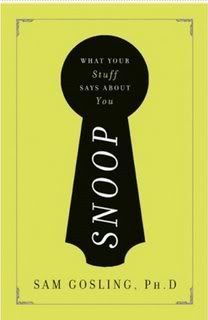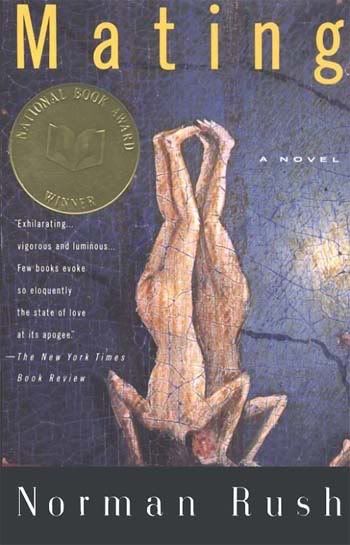Transcending biology
Today, inventor and all-around nutty, brilliant nerd Ray Kurweil was a guest on NPR's Talk of the Nation Science Friday. He talked* about the telescoping of technological innovation and how rapidly scientists are expanding the storage and cognitive capacities of computers. He thinks that we can't even begin to imagine the technological outcomes that will occur within just the next few decades (flying cars? think waaaay bigger, he says). Computers' capabilities increase exponentially and consistently every year, which means we can predict, roughly, how much power computers will harness in 50 years. We can predict it, but it's hard to fathom what that might actually mean. Kurweil foresees a singularity, a sort of time in which technology and biology are so integrated that they are similar if not one in the same. He's written a book about it.
Kurweil has an optimistic outlook for the future. He believes as computers become ever stronger and ever smaller (and ever cheaper), they will become fully integrated with the organic and we will use them to enhance not just our own cognitive functions (as we do now with, say, calculators) but also our physiological functions. Computers have gone from giant, slow-thinking machines that fill entire rooms, to clunky desktop machines, to smaller laptop machines, to tiny hand-held portable machines in mere decades. As computers get closer and closer physically to humans, the next step, Kurweil says, is for computers to be integrated into our clothing. And then our bodies. This is already happening. (Remember the quadriplegic who can send e-mails using his mind?) And it will become more common and more unobtrusive. It's evolution, whether you believe in evolution or not.
Kurweil sees a day when genetic manipulation will be commonplace, and tiny microscopic computers will be let loose in the bloodstream like enzymes to clean up cholesterol, eradicate cancer, and otherwise spruce up the body to keep it healthy and working long past what we now consider old age.
In Kurweil's own words, we will one day be able to transcend biology. He even goes so far as to suggest immortality as the ultimate outcome of singularity. Of course, I think we should scoff at such an idea -- it's narcissistic, it's impractical, etc. But listening to Kurweil's philosophical reasoning behind his push for this idea of the future is fascinating. To him, death and disease are obstacles the human race is destined to overcome. Yet he admits that his vision of the future isn't utopian; there will still be bad people bent on wreaking havoc and using technology -- which has no core morality or ethics -- to cause death and destruction.
This kind of radical future talk excites me. I've always hoped (with some trepidation) that we would see major shifts in life, living, and the definition of "real" during my lifetime, but I've always hoped that these shifts would be of the progressive kind -- evolutionary leaps forward, not back. If the technological leaps of just the past 10 years are any indication, the next century is going to bring about revolution of the most interesting kind. And quick.
*I'm woefully unlearned about much of this stuff, so forgive me if I botch the details or accidentally misrepresent Kurweil's ideas. I've done my best to translate what I heard in the interview into a basic, layman's understanding.
Kurweil has an optimistic outlook for the future. He believes as computers become ever stronger and ever smaller (and ever cheaper), they will become fully integrated with the organic and we will use them to enhance not just our own cognitive functions (as we do now with, say, calculators) but also our physiological functions. Computers have gone from giant, slow-thinking machines that fill entire rooms, to clunky desktop machines, to smaller laptop machines, to tiny hand-held portable machines in mere decades. As computers get closer and closer physically to humans, the next step, Kurweil says, is for computers to be integrated into our clothing. And then our bodies. This is already happening. (Remember the quadriplegic who can send e-mails using his mind?) And it will become more common and more unobtrusive. It's evolution, whether you believe in evolution or not.
Kurweil sees a day when genetic manipulation will be commonplace, and tiny microscopic computers will be let loose in the bloodstream like enzymes to clean up cholesterol, eradicate cancer, and otherwise spruce up the body to keep it healthy and working long past what we now consider old age.
In Kurweil's own words, we will one day be able to transcend biology. He even goes so far as to suggest immortality as the ultimate outcome of singularity. Of course, I think we should scoff at such an idea -- it's narcissistic, it's impractical, etc. But listening to Kurweil's philosophical reasoning behind his push for this idea of the future is fascinating. To him, death and disease are obstacles the human race is destined to overcome. Yet he admits that his vision of the future isn't utopian; there will still be bad people bent on wreaking havoc and using technology -- which has no core morality or ethics -- to cause death and destruction.
This kind of radical future talk excites me. I've always hoped (with some trepidation) that we would see major shifts in life, living, and the definition of "real" during my lifetime, but I've always hoped that these shifts would be of the progressive kind -- evolutionary leaps forward, not back. If the technological leaps of just the past 10 years are any indication, the next century is going to bring about revolution of the most interesting kind. And quick.
*I'm woefully unlearned about much of this stuff, so forgive me if I botch the details or accidentally misrepresent Kurweil's ideas. I've done my best to translate what I heard in the interview into a basic, layman's understanding.




















0 Comments:
Post a Comment
<< Home